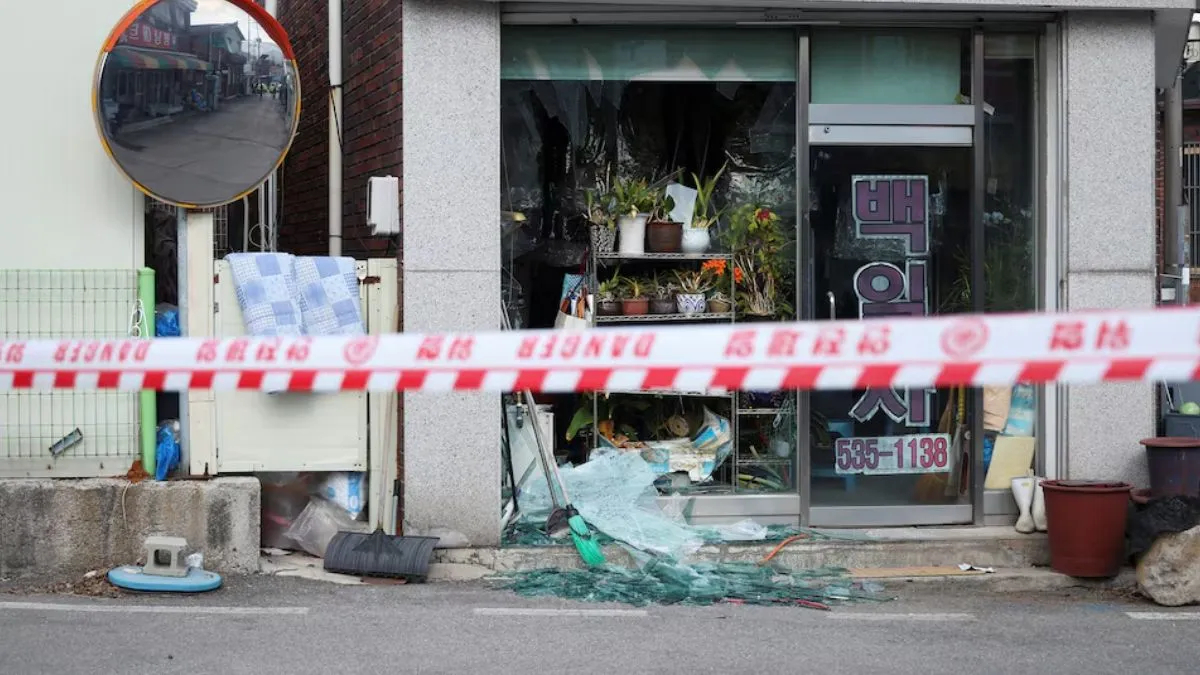- By Imran Zafar
- Thu, 06 Mar 2025 11:06 AM (IST)
- Source:JND
South Korea's Air Force said on Thursday that a KF-16 fighter jet mistakenly dropped eight MK-82 bombs outside the designated firing range during a training exercise, resulting in eight injuries including civilians. The incident occurred in Pocheon, near the North Korean border. The Air Force expressed regret over the incident and assured compensation for the affected individuals.
According to reports, the bombs fell in a civilian area, damaging several buildings. The Yonhap news agency stated that seven people, including five civilians and two soldiers, sustained injuries. Among them, two were reported to be in serious condition, though not life-threatening. Photographs from the scene showed a severely damaged house with debris scattered around.
The Air Force announced that a committee would be formed to investigate the cause of the accident and assess the extent of the civilian damage. Officials assured that all necessary measures, including compensation, would be taken for the victims.
ALSO READ: Trump Administration To Ban Pakistanis And Afghans From Entering US: Reports
The Air Force also apologised for the incident and wished the injured a swift recovery. "We are sorry for the damage caused by the abnormal drop accident, and we wish the injured a speedy recovery," the Air Force said in a statement.
The mishap took place during joint live-fire exercises involving the South Korean Air Force and Army. The defence ministry also noted that South Korea and US forces had begun joint drills in the region ahead of their annual Freedom Shield military exercise, scheduled to run from March 4 to March 20.
Seoul’s Joint Chiefs of Staff (JCS) highlighted that this year’s drills would incorporate lessons from recent global conflicts and consider North Korea’s growing ties with Russia. Around 70 combined field training sessions are planned, with US Forces Korea (USFK) officials emphasising the importance of adapting exercises to evolving security challenges.


